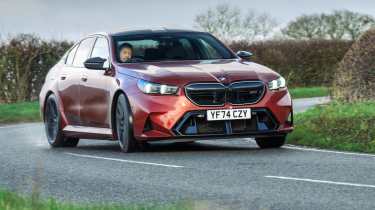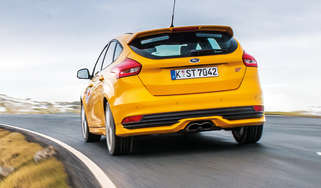2030 petrol ban cancelled for low-volume car manufacturers like Ferrari
Pure petrol cars will be allowed to be sold until 2035 by low-volume manufacturers, and hybrids are back on the menu too

Petrol and diesel cars won’t be banned in 2030 after all, at least for small-volume and micro-volume marques. It’s also been confirmed that hybrid cars (excluding mild hybrids) will also be allowed beyond 2030, until 2035. This follows the UK government’s consultation with the car industry through the first quarter of 2025 on how the 2030 ban is to be implemented.
First and foremost, solely petrol cars – that’s cars that are not hybridised in any way – won’t be banned in 2030 for small volume manufacturers (SVM) and micro volume manufacturers (MVM). These are manufacturers that register fewer than 2499 and 1000 cars a year, respectively. There will, however, be a requirement for SVMs to nominally reduce CO2 output across their fleets after 2030, with amounts set to be mutually agreed at a later date.
What does this mean? The likes of Aston Martin, Ferrari, Maserati, McLaren, Ariel, Morgan, Caterham, Pagani and more are clear to make the petrol-only supercars and sports cars they make today, and successors to them, until 2035. Bentley and Lamborghini are clear too, given that by the end of 2025, all of the cars in their respective lineups will be plug-in hybrids, which as above, will now be permitted to be sold until 2035. The JLR house won't have to bet on the success of the new Jag either, or indeed the success of the all-electric Range Rover, with hybrid versions of Coventry’s cash cow given the green light for another decade.

What does this mean for the likes of Porsche and other slightly higher-volume manufacturers that have petrol-specific model lines? Well, taking the 911 GT3 as an example, it’s possible a pure-ICE GT3 could live on under a Porsche Motorsport sub-brand with its own sales volumes, separate to the main Porsche company. More likely, Porsche will nominally hybridise the GT3 and indeed the entire 911 range to a level of compliance, ready for the first half of the next decade.
> Porsche's EV U-turn means more new petrol cars and hybrids are coming
From a more general point of view, Zuffenhausen will welcome the legislative changes that are in line with its refocus on hybrid products. With customer interest in EVs at the higher end of the market cooling, Porsche has been outspoken in its intention to double down on electrified combustion models, even saying that it could debut a small hybrid SUV to sell alongside the electric Macan.
‘We are examining a new model line that could be launched towards the end of the decade – also in pure combustion-engine and hybrid forms,’ Porsche CEO Oliver Blume said in March, at the marque’s annual year-end conference. Under these new regulations, such a model will be allowed to be sold in the UK until 2035, in hybrid form, at least.
Internal combustion beyond 2035 – it’s anyone’s guess

What future does the internal combustion engine have on the UK’s new car market beyond 2035? By the letter of these new rules, hybrids will be banned and low-volume manufacturers will have to make the EV switch. That means petrol-powered Porsche 911s, hybrid or otherwise, have just under a decade of sales in the UK to go from now.
The conversation will inevitably come up again as the new date draws near. Future prevailing market conditions, customer sentiments and political headwinds will no doubt play their part in deciding, as they have this time. If past experience is anything to go by, we won’t know until the last moment…



